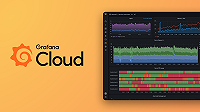Caution
Grafana Alloy is the new name for our distribution of the OTel collector. Grafana Agent has been deprecated and is in Long-Term Support (LTS) through October 31, 2025. Grafana Agent will reach an End-of-Life (EOL) on November 1, 2025. Read more about why we recommend migrating to Grafana Alloy.
remote.kubernetes.secret
remote.kubernetes.secret reads a Secret from the Kubernetes API server and exposes its data for other components to consume.
A common use case for this is loading credentials or other information from secrets that are not already mounted into the Grafana Agent pod at deployment time.
Usage
remote.kubernetes.secret "LABEL" {
namespace = "NAMESPACE_OF_SECRET"
name = "NAME_OF_SECRET"
}Arguments
The following arguments are supported:
| Name | Type | Description | Default | Required |
|---|---|---|---|---|
namespace | string | Kubernetes namespace containing the desired Secret. | yes | |
name | string | Name of the Kubernetes Secret | yes | |
poll_frequency | duration | Frequency to poll the Kubernetes API. | "1m" | no |
poll_timeout | duration | Timeout when polling the Kubernetes API. | "15s" | no |
When this component performs a poll operation, it requests the Secret data from the Kubernetes API. A poll is triggered by the following:
- When the component first loads.
- Every time the component’s arguments get re-evaluated.
- At the frequency specified by the
poll_frequencyargument.
Any error while polling will mark the component as unhealthy. After a successful poll, all data is exported with the same field names as the source Secret.
Blocks
The following blocks are supported inside the definition of remote.kubernetes.secret:
| Hierarchy | Block | Description | Required |
|---|---|---|---|
| client | client | Configures Kubernetes client used to find Probes. | no |
| client > basic_auth | basic_auth | Configure basic authentication to the Kubernetes API. | no |
| client > authorization | authorization | Configure generic authorization to the Kubernetes API. | no |
| client > oauth2 | oauth2 | Configure OAuth2 for authenticating to the Kubernetes API. | no |
| client > oauth2 > tls_config | tls_config | Configure TLS settings for connecting to the Kubernetes API. | no |
| client > tls_config | tls_config | Configure TLS settings for connecting to the Kubernetes API. | no |
The > symbol indicates deeper levels of nesting. For example, client > basic_auth
refers to a basic_auth block defined inside a client block.
client block
The client block configures the Kubernetes client used to discover Probes. If the client block isn’t provided, the default in-cluster
configuration with the service account of the running Grafana Agent pod is used.
The following arguments are supported:
| Name | Type | Description | Default | Required |
|---|---|---|---|---|
api_server | string | URL of the Kubernetes API server. | no | |
kubeconfig_file | string | Path of the kubeconfig file to use for connecting to Kubernetes. | no | |
bearer_token_file | string | File containing a bearer token to authenticate with. | no | |
bearer_token | secret | Bearer token to authenticate with. | no | |
enable_http2 | bool | Whether HTTP2 is supported for requests. | true | no |
follow_redirects | bool | Whether redirects returned by the server should be followed. | true | no |
proxy_url | string | HTTP proxy to send requests through. | no | |
no_proxy | string | Comma-separated list of IP addresses, CIDR notations, and domain names to exclude from proxying. | no | |
proxy_from_environment | bool | Use the proxy URL indicated by environment variables. | false | no |
proxy_connect_header | map(list(secret)) | Specifies headers to send to proxies during CONNECT requests. | no |
At most, one of the following can be provided:
no_proxy can contain IPs, CIDR notations, and domain names. IP and domain
names can contain port numbers. proxy_url must be configured if no_proxy
is configured.
proxy_from_environment uses the environment variables HTTP_PROXY, HTTPS_PROXY
and NO_PROXY (or the lowercase versions thereof). Requests use the proxy from
the environment variable matching their scheme, unless excluded by NO_PROXY.
proxy_url and no_proxy must not be configured if proxy_from_environment
is configured.
proxy_connect_header should only be configured if proxy_url or proxy_from_environment are configured.
basic_auth block
| Name | Type | Description | Default | Required |
|---|---|---|---|---|
password_file | string | File containing the basic auth password. | no | |
password | secret | Basic auth password. | no | |
username | string | Basic auth username. | no |
password and password_file are mutually exclusive, and only one can be provided inside a basic_auth block.
authorization block
| Name | Type | Description | Default | Required |
|---|---|---|---|---|
credentials_file | string | File containing the secret value. | no | |
credentials | secret | Secret value. | no | |
type | string | Authorization type, for example, “Bearer”. | no |
credential and credentials_file are mutually exclusive, and only one can be provided inside an authorization block.
oauth2 block
| Name | Type | Description | Default | Required |
|---|---|---|---|---|
client_id | string | OAuth2 client ID. | no | |
client_secret_file | string | File containing the OAuth2 client secret. | no | |
client_secret | secret | OAuth2 client secret. | no | |
endpoint_params | map(string) | Optional parameters to append to the token URL. | no | |
proxy_url | string | HTTP proxy to send requests through. | no | |
no_proxy | string | Comma-separated list of IP addresses, CIDR notations, and domain names to exclude from proxying. | no | |
proxy_from_environment | bool | Use the proxy URL indicated by environment variables. | false | no |
proxy_connect_header | map(list(secret)) | Specifies headers to send to proxies during CONNECT requests. | no | |
scopes | list(string) | List of scopes to authenticate with. | no | |
token_url | string | URL to fetch the token from. | no |
client_secret and client_secret_file are mutually exclusive, and only one can be provided inside an oauth2 block.
The oauth2 block may also contain a separate tls_config sub-block.
no_proxy can contain IPs, CIDR notations, and domain names. IP and domain
names can contain port numbers. proxy_url must be configured if no_proxy
is configured.
proxy_from_environment uses the environment variables HTTP_PROXY, HTTPS_PROXY
and NO_PROXY (or the lowercase versions thereof). Requests use the proxy from
the environment variable matching their scheme, unless excluded by NO_PROXY.
proxy_url and no_proxy must not be configured if proxy_from_environment
is configured.
proxy_connect_header should only be configured if proxy_url or proxy_from_environment are configured.
tls_config block
| Name | Type | Description | Default | Required |
|---|---|---|---|---|
ca_pem | string | CA PEM-encoded text to validate the server with. | no | |
ca_file | string | CA certificate to validate the server with. | no | |
cert_pem | string | Certificate PEM-encoded text for client authentication. | no | |
cert_file | string | Certificate file for client authentication. | no | |
insecure_skip_verify | bool | Disables validation of the server certificate. | no | |
key_file | string | Key file for client authentication. | no | |
key_pem | secret | Key PEM-encoded text for client authentication. | no | |
min_version | string | Minimum acceptable TLS version. | no | |
server_name | string | ServerName extension to indicate the name of the server. | no |
The following pairs of arguments are mutually exclusive and can’t both be set simultaneously:
ca_pemandca_filecert_pemandcert_filekey_pemandkey_file
When configuring client authentication, both the client certificate (using
cert_pem or cert_file) and the client key (using key_pem or key_file)
must be provided.
When min_version is not provided, the minimum acceptable TLS version is
inherited from Go’s default minimum version, TLS 1.2. If min_version is
provided, it must be set to one of the following strings:
"TLS10"(TLS 1.0)"TLS11"(TLS 1.1)"TLS12"(TLS 1.2)"TLS13"(TLS 1.3)
Exported fields
The following fields are exported and can be referenced by other components:
| Name | Type | Description |
|---|---|---|
data | map(secret) | Data from the secret obtained from Kubernetes. |
The data field contains a mapping from field names to values.
If an individual key stored in data does not hold sensitive data, it can be
converted into a string using the nonsensitive function:
nonsensitive(remote.kubernetes.secret.LABEL.data.KEY_NAME)Using nonsensitive allows for using the exports of remote.kubernetes.secret for
attributes in components that do not support secrets.
Component health
Instances of remote.kubernetes.secret report as healthy if the most recent attempt to poll the kubernetes API succeeds.
Debug information
remote.kubernetes.secret does not expose any component-specific debug information.
Debug metrics
remote.kubernetes.secret does not expose any component-specific debug metrics.
Example
This example reads a Secret and a ConfigMap from Kubernetes and uses them to supply remote-write credentials.
remote.kubernetes.secret "credentials" {
namespace = "monitoring"
name = "metrics-secret"
}
remote.kubernetes.configmap "endpoint" {
namespace = "monitoring"
name = "metrics-endpoint"
}
prometheus.remote_write "default" {
endpoint {
url = remote.kubernetes.configmap.endpoint.data["url"]
basic_auth {
username = nonsensitive(remote.kubernetes.configmap.endpoint.data["username"])
password = remote.kubernetes.secret.credentials.data["password"]
}
}
}This example assumes that the Secret and ConfigMap have already been created, and that the appropriate field names exist in their data.



